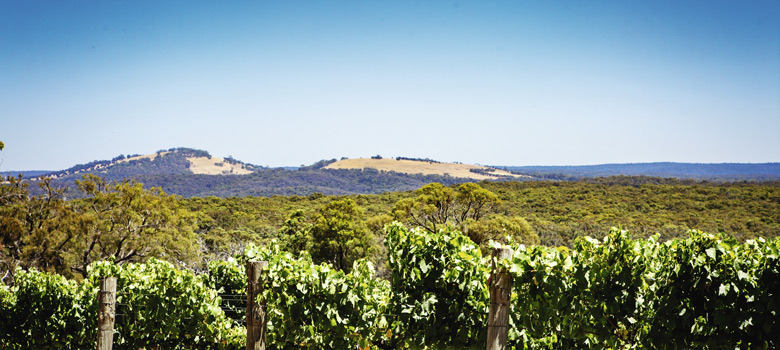
Wine
Vertical Tasting: Bindi Wines
Ever pondered how the improbable becomes probable? You aren’t alone. Carl Jung, friend of Sigmund Freud, came up with a theory to explain why seemingly random occurrences are not random at all. He called this ‘Synchronicity,’ a term which implies that nothing is accidental and everything is meaningfully connected. Jung’s theory was dismissed, but it does help explain coincidental encounters from which something blossoms as if it’s destined to be.
The beginnings of Bindi, a small family wine estate in Victoria’s Macedon Ranges, could be seen as an example of synchronicity, given a series of random coincidences manifested into a delicious, serendipitous part of the Australian wine-scape.
Bindi’s Beginnings
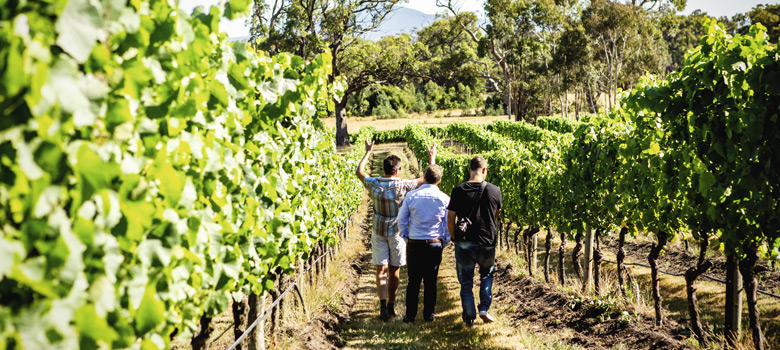
Bill Dhillon came from Punjab, India as a child and attended Ballarat Grammar School, where he met Kostas Rind, a Lithuanian refugee teaching physics and maths. Before he fled his home, Kostas was experimenting with fermentation and when he arrived in Australia and eventually left the Bonegilla refugee camp, he started buying, bottling and cellaring table wine.
Kostas became Bill’s mentor and friend and after Bill graduated, they began exploring Australia’s great wines. This ignited a passion in Bill, leading to him planting Pinot Noir and Chardonnay vines on a property he shared with his wife, Kaye.
The property was called Bindi and, in the early stages, Kaye and Bill received advice and support from Anne and John Ellis, who had started Hanging Rock winery nearby a few years earlier.
John made the first Bindi Chardonnays from 1991 to 1995 and then Stuart Anderson, Balgownie Estate founder, made the wines until 1998. Kaye and Bill’s son Michael, now winemaker and owner of Bindi, was studying economics in Melbourne, but kept returning to help out. Stuart inspired Michael and his view of the wine world expanded. The allure of a finance career soon dissipated for Michael and as he took over in 1998, the Bindi story began to take shape.
Respect and Reflection
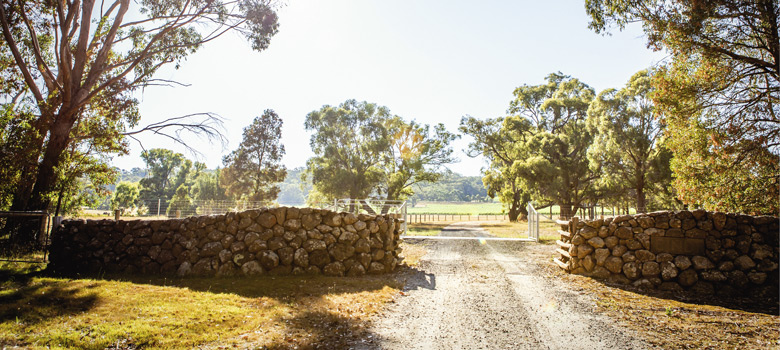
Bindi wines are special in that they reflect not only a sense of place, but also the people who have influenced them. There is a Chardonnay labelled ‘Kostas’ to honour the friendship between Bill and Kostas. The ‘Block 5’ Pinot label pays respect to Stuart Anderson by featuring his face and there’s the ‘Kaye’ Pinot honouring Michael’s mother. “We never take these things for granted,” says Michael. “We never let them go, we don’t divorce the people from the wine and the wine from the people. It’s no coincidence that we attract people that have qualities that appeal to us and then these characteristics get passed down through people and are eventually expressed in the wine.”
Tasting Bindi
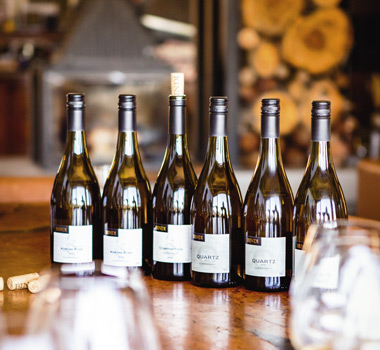
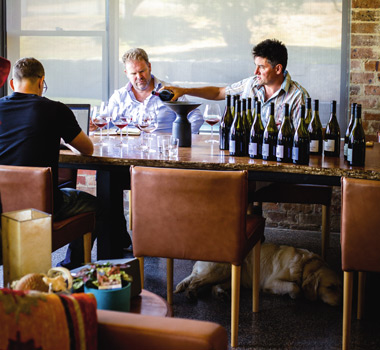
It was fitting that our Bindi tasting started with the ‘Kostas’ Chardonnay. The 2016 and 2017 were poised with creamy stone fruit, citrus chalk and white flower aromatics. The palate was long, zesty and full of restrained lime juice, white peach and apricots. The 2017 was tight and fresh and the 2016 was beginning to show its concentration, drive and long term potential.
‘Quartz’ is Bindi’s top tier Chardonnay and had some of the ‘Kostas’ citrus and stone fruit aromas, but with extra layers of apples and nuts. The 2017 was generous and juicy with tight lines of honeydew and citrus, the 2015 was poised with white peaches and the 2011 was complex with primary and secondary citrus and stone fruits linked together with beeswax and baked pears.
As a treat, Michael opened a ‘Composition’ Chardonnay from 2006. It was creamy and concentrated with apple pie, peach and Xmas cake aromas that translated to a palate of juicy and concentrated peach, lime juice and apricots which, for a 13-year-old wine, was still showing freshness.
Next came the 2017 ‘Dixon’ Pinot hailing from the original 1988 and 2001 plantings. Ripe and pretty, ‘Dixon’ held strawberry and blackberry aromatics and a fine grained palate full of glossy black cherries and plums.
Next came six wines from the ‘Original Vineyard’ range. These Pinots come from the original 1988 plantings and were characterised by perfumed aromas of blackberry, cherry, lines of spice and a silky, slippery mouthfeel. The younger 2017 and 2016 were condensed and fresh and from the 2015, the wines started to open up and present a seductive range of sweet and sour fruit development. The 2015 stood out for its regal complexity and the 2000 proved that these wines are built to go the distance.
The 2010 ‘Composition’ Pinot followed with earthy, broody aromatics laced with leather that pushed through to a lovely mouthful of black cherry and blackberry flavours supported by nicely constructed tannins.
‘Kaye’ Pinot came next, crafted from the highest vines on the property and selected from the best barrels in the best years, the label describes Kaye as a “humanist, nurturer of the land whose spirit resides in the landscape.” Both the 2017 and the 2010 were broad, generous and complex with a beguiling earthy tone that is characterised aromatically by savoury black cherries. A fitting tribute to an important part of the Bindi story.
Two ‘Block 5’ wines rounded out the tasting. Representing Bindi’s best, these wines expressed darker, low-pitched blackberry and earth notes characterised by spice, power and complexity. The 2017 was youthful with strawberry, black cherries, earth and blackberry aromatics and the 2010 was sublime; plush, refined and just starting to show some complexing development that lovers of Pinot fall for.
The wines of Bindi are unique, charismatic and gracefully reflect a place of quiet harmony. From the energy of the property, to the people associated with it, through to the liquid in the bottle, everything feels and tastes like it was always meant to be.
Carl Jung would be pleased.
For more fantastic Selector Magazine content, click here.